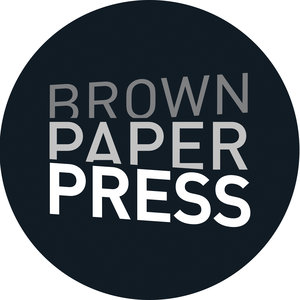I have a confession: I love reading books on my iPad.
I know. There is a special place in hell for publishers like me, but I can’t help it.
I love that I can touch a word on my iPad, and the definition will pop up instantly. I love that I can change the font, and read in the dark, and access my entire library from a single page. I love that I can highlight text, and make notes, and bookmark pages — and then undo it all just as easily. I love that I can travel with dozens of books at a time without adding any weight to my luggage.
Although I found it difficult to go digital at first, I'm no longer all that nostalgic about the feel of a book in my hands. In the end, it really is the words that matter to me, not the mode.
But there is one thing I do lament about the loss of real books on real bookshelves, and it’s probably the reason I will never give up print. Not entirely.
Real books carry a tangible connection to the past.
Without paper pages, I can’t stumble across other people’s underlined passages, or feel the creases left over from their dog-eared pages, or read their (ahem) notes in the margins. Without paper pages, I don’t have the opportunity to think — if only for a fleeting moment — about the people who lived and read before me, or let their marks and notations deepen my enjoyment of the texts themselves.
Nowhere is this sense of loss more profound, for me personally, than when I consider two books sitting on my own bookshelf: My grandmother’s Holy Bible, and my mother’s copy of Mastering the Art of French Cooking. And in honor of Mother’s Day, I thought it might be a great time to revisit them.
The covers of both books are well-worn and threadbare from decades of constant use, and each speaks volumes about what both each woman loved and valued. For my grandmother, it was Jesus. For my mother, Julia Child.
The Bible, published in 1900, was given to my grandmother by her grandfather, a minister himself, when she was 13 years old. It reads: “In Remembrance of Christmas Time 1922 at Deerwood, Minn.,” and is signed “with God's blessings, Grandpa Erlander.”
The cookbook, an eighth edition published in 1968, is signed “Bon appétit! Julia Child.”
The inscriptions alone make these books special, but their real value to me is within the texts themselves, where the marks and stains and notes make me feel as though I'm in the room with these women, watching over their shoulders as they absorb the nuances of the sentences inside.
My grandmother has been dead many years now, but the Bible was a focus of her life. She very much wanted to be the person her Christ wanted her to be. And she prioritized her faith above many other things. In her Bible, which is incredibly beautiful in its own right, she underlined passages about being “saved,” noted the importance of being helpful to others, and seemed to revel particularly in the story of Jesus’ birth. My grandfather, her husband, died years before my grandmother, and I know — based on her notations — that she must have thought of him often, Bible in hand, and longed for the day she would meet him again in heaven.
Mastering the Art of French Cooking is equally fun for me to open and scan for what it can tell me about my mother. You can tell, for instance, from the oil stains and food splatters, that one of my mom's go-to meals was Chicken Sautéed in Butter (mine, too, incidentally). She loved the "sauces" section — especially the recipe for Hollandaise Sauce — and spent many evenings poring over pages 315 to 317: Boeuf Bourguignon. When I was growing up, Mastering the Art of French Cooking was brought out from its nesting place only on the happiest occasions — dinner parties, family get-togethers, and holidays. Glad times, those were, for all of us.
Looking at these two books side-by-side, I am struck by all the parallels. I certainly wouldn’t go so far as to call cooking my mother's religion or Julia Child her savior, but entertaining with delicious food did play a central role in how she lived her life — just as faith played a central role in how my grandmother lived hers. Both women must have read and reread the pages of their respective books hundreds of times, always taking away something to feed them, body and soul.
Had Jesus lived long enough to know Julia Child, it seems quite possible that they would have become friends. Julia would surely have enjoyed that trick Jesus did when he changed water into wine, yeah? And Jesus, when faced with deciding how to season the two fish that would feed 5,000 people, might have asked himself: What Would Julia Do?
Or not.
The point is, I've got these two books — two of my most valued possessions, frankly — and neither of them would exist without traditional publishing houses and traditional books. And while I would never advocate a reverse in the course of technology — that train has left the station, and I jumped on board a long time ago — I am so grateful that these books exist and that I can open them (literally open them!) anytime I want. I am glad for every imperfection left inside, each stain, each crinkled page. For every mark, intentional or not, tells me something about the women who came before me. Women I love very much.
Do you think my iPad will tell my daughter anything at all about me?








